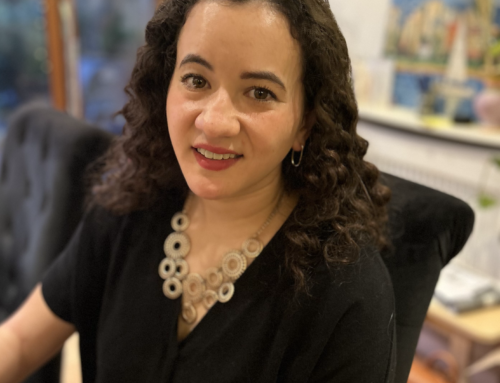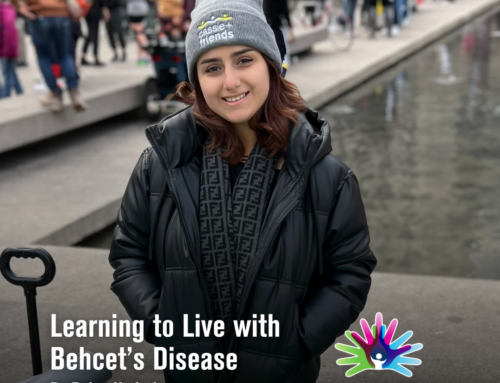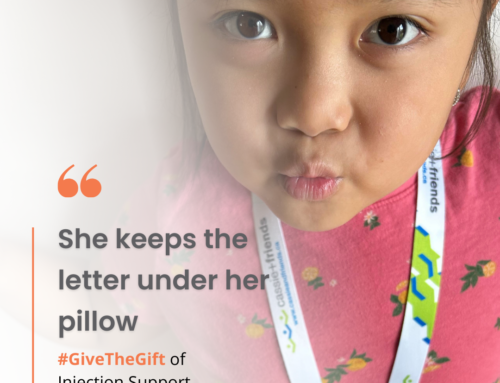With August being Auto-inflammatory Awareness Month, we connected with Nicole Pereira to share her journey with a very rare form of Vasculitis called Adenosine Deaminase 2 Deficiency. After wondering why her legs were covered in bruises from simply watching TV, Nicole realized something was seriously wrong.Through the challenges, she’s learned to curate a positive mindset and use her experiences as tools to achieve her goals. Read her powerful words below.
I suggest choosing the window seat when you book a flight.
Just before an airplane makes its descent into what we all hope will be a perfect landing, a glance out of the small oval window will give you a bird’s eye view of the city. It is only from this height that you can overlook all the highways, avenues, and inner roads that interconnect and wind together to make up your flight destination. The taxi you hail from the airport will be based on your assumption that those roads will be intact the entire ride home. After all, why would you presume something so ordinary and invariable would fall apart?
When I was 12 years old, both my legs were covered in bruises from thighs to toes, and I tried so hard to convince myself that I was just clumsy during recess. However, as I watched purple spots appear on my body while doing nothing more than watching TV, it became evident that something was seriously wrong. I spent months feeling like I had a constant fever, having no appetite, and managing unexplained pain. The diagnosis of something I had to practice pronouncing, “Polyarteritis Nodosa”, didn’t change much. Instead, now on top of all the pain, I was taking a cocktail of medications with side effects that made me look and feel unrecognizable.
Like a city’s road map, the body uses arteries to branch into every part of the human system. My condition, which has been further diagnosed as an extremely rare form of vasculitis known as Adenosine Deaminase 2 Deficiency, causes my immune system to attack the arteries that circulate blood. Because of the mechanisms of my disease, I navigate chronic pain and will most likely be on immunosuppressants for the rest of my life. But I haven’t shared this part of my life because it is a sad story. In fact, these are the experiences that I feel the most grateful for, because I believe that the hardships we face in life result in the most character growth and perseverance. No matter what I was going through physically, I had complete control over my mindset.
I saw my future exactly like the road map I described earlier, with branches that connected me to great opportunities as long as I let myself make the right turns. So, I began focusing on what I could change and ways I could improve the things that were within my reach. I realized I had a unique opportunity to help others navigate similar obstacles and thrive despite their illness. Since then, I have worked really hard to make that goal a reality. This line of thinking began in the hospital where I found strategies to keep up all my grades, oftentimes while going through low-dose chemotherapy treatments or after missing weeks of school. I have volunteered at numerous events for kids facing illnesses and have been volunteering with BC Children’s Hospital for almost 3 years now. The ultimate goal would be a direct impact through obtaining a physician’s role within the hospital itself.
I truly believe that the greatest gift you can give yourself is a positive mindset. It took me a long time to understand that facing an illness may be a defining event, but it does not define character. When I volunteer with kids who have rheumatology-based conditions, my hope is that they come to understand that they are not a victim of their illness. Instead, their experiences can be used as tools to achieve great things and inspire others. By sharing your vulnerabilities, you can use those broken road maps to connect with others, create change within yourself, and raise awareness for the things you want to see improve.
To learn more about Auto-inflammatory conditions, click the resources below:











[…] lived examples from families with Autoinflammatory diseases in our community, be sure to check out Nicole’s Story and other resources on our website at: […]